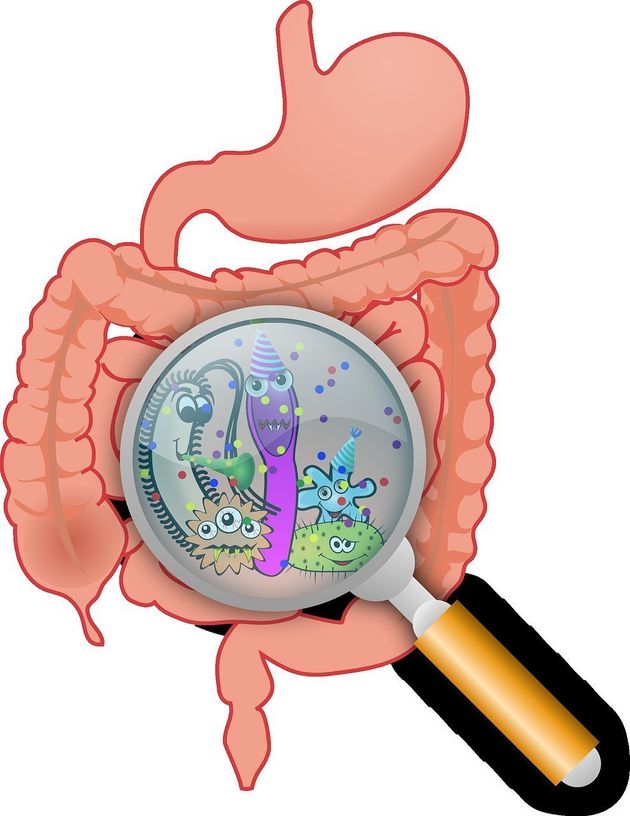Your digestive system is one of the most important organ systems in the body. It is the part where our food and drinks are processed to get nutrients that are essential for the overall wellness of the body. Gut health is vital in the whole digestion process as it determines the permeability of substances in the body.
Our small intestines play a large part in food digestion. It is where extracted vitamins and minerals are collected and transferred to the bloodstream to be delivered to various parts of the body. The process is made secure by the semi-permeable property of the intestinal lining, where other substances, especially harmful ones, are not absorbed into the body.
What Contributes to an Unhealthy Gut?
 Our overall diet determines our gut health. If you do not eat healthy food or balance your diet, chances are you will experience problems with your gut or have experienced one now. Too much sugar, fatty food, and processed foods can damage your stomach over time. Stress and sleep deprivation can also contribute to the degradation of your gut health.
Our overall diet determines our gut health. If you do not eat healthy food or balance your diet, chances are you will experience problems with your gut or have experienced one now. Too much sugar, fatty food, and processed foods can damage your stomach over time. Stress and sleep deprivation can also contribute to the degradation of your gut health.
What are the Signs of an Unhealthy Gut?
Here are some symptoms that indicate damage and degradation of your gut health.
• Food intolerance
Having the poor quality of gut bacteria may lead to various food intolerances like gluten and lactose intolerances. If you have a damaged or degraded gut, you will experience pains in the stomach, nausea, bloating, excessive gas outtake, and diarrhea on specific food particles.
• Skin problems and illnesses
Food allergies, eczema, and rosacea are common skin problems related to poor gut health. If you have a damaged gut lining, it will permeate harmful particles that will be transported through the bloodstream and will cause irritations on the dermis of the skin. Dermatitis, psoriasis, and acne are also linked to the unhealthy and imbalanced gut microbiome.
• Unexpected changes in body weight
Whether you’ll gain or lose, these changes may indicate bacterial imbalance and the impairment of the selective permeability property of the gut wall. Weight loss due to an unhealthy gut is caused by bacterial overgrowth in the small intestines. Weight gain is caused by insulin resistance because the gut could no longer absorb nutrients properly.
• Issues with food digestion
If your gut is not healthy, you will be experiencing more frequent illnesses related to the digestive system. Constipation, excessive gas, bloating, diarrhea, and heartburn are possible signs that your gut health is degrading.
• Autoimmune diseases
The inability of the gut wall to control the permeation of substances to the body may lead to severe inflammations in the digestive organs, which contributes to altering functions of the immune system. If this becomes repetitive, chances are the antibodies will attack the body itself, not the harmful substances.
How can you improve your gut health?
Having enough sleep at night and maintaining a healthy diet promotes better gut health. Studies have shown that maintaining 7-8 hours of uninterrupted sleep regulates the number of good bacteria in the gastrointestinal tract, which promotes better digestion and proper functioning of the gut. Depriving yourself of sleep will decrease the number of good bacteria in the body by up to 50% and can resemble those gut bacteria found inside obese individuals.
Having a healthier meal has a significant impact on gut health too. Balancing your meals with lean protein and eating more plant-based, fiber-rich food promotes the growth of good bacteria that helps in repairs and reinforcements of the overall health of the digestive system.
Conclusion
Technically, you are what you eat. Our gut health has a significant role in maintaining the overall health and well-being of the body. If our gut stays healthy, our digestion is functional, nutrients are better absorbed and transported in the body, and our lives will become better with a healthier physique that is ready for anything in life.







































